Blue Light Glasses: Do We Really Need Blue Cut Lenses?

Blue light glasses, also called blue cut lenses, are marketed as essential for anyone using screens. While they can reduce glare and improve comfort, especially for long hours on computers or late-night screen use, they’re not magic shields for eye health. Eye strain is usually caused by reduced blinking, glare, and poor posture, not just blue light. Blue light may affect sleep by suppressing melatonin, so glasses may help in the evening, but reducing screen time is more effective. People who work long hours on screens, gamers, IT professionals, or those with persistent glare and headaches may benefit. Children, casual screen users, or those buying for trendiness likely don’t need them. Proper eye care—like the 20-20-20 rule, frequent blinking, correct lighting, posture, and regular eye exams—is far more important than any lens coating. In short, blue cut glasses are helpful for some, optional for many, and unnecessary for a few. They’re a tool for comfort, not a replacement for good screen habits and eye health.
Nystagmus: Causes, Types, Testing & Systemic Links Explained
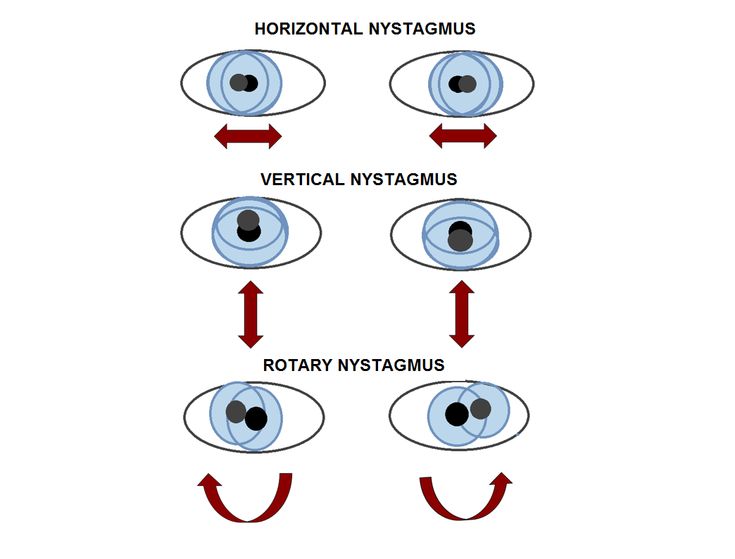
Nystagmus is an involuntary, rhythmic eye movement that can be horizontal, vertical, or circular. Some people are born with it (congenital), while others develop it later due to neurological, ocular, vestibular, or systemic causes. Types include congenital, manifest/latent, pendular, and jerk nystagmus, each offering clues to underlying conditions. Causes range from eye disorders like congenital cataract or albinism to neurological problems such as multiple sclerosis, stroke, brain tumors, or inner ear disorders. Diagnosis involves clinical examination, visual tests, electronystagmography (ENG), videonystagmography (VNG), and sometimes MRI or vestibular testing. Management depends on the cause and may include optical aids, medications, vision therapy, or surgery.
Understanding Colour Vision: Defects, Causes, Jobs, Tests, and Everyday Life
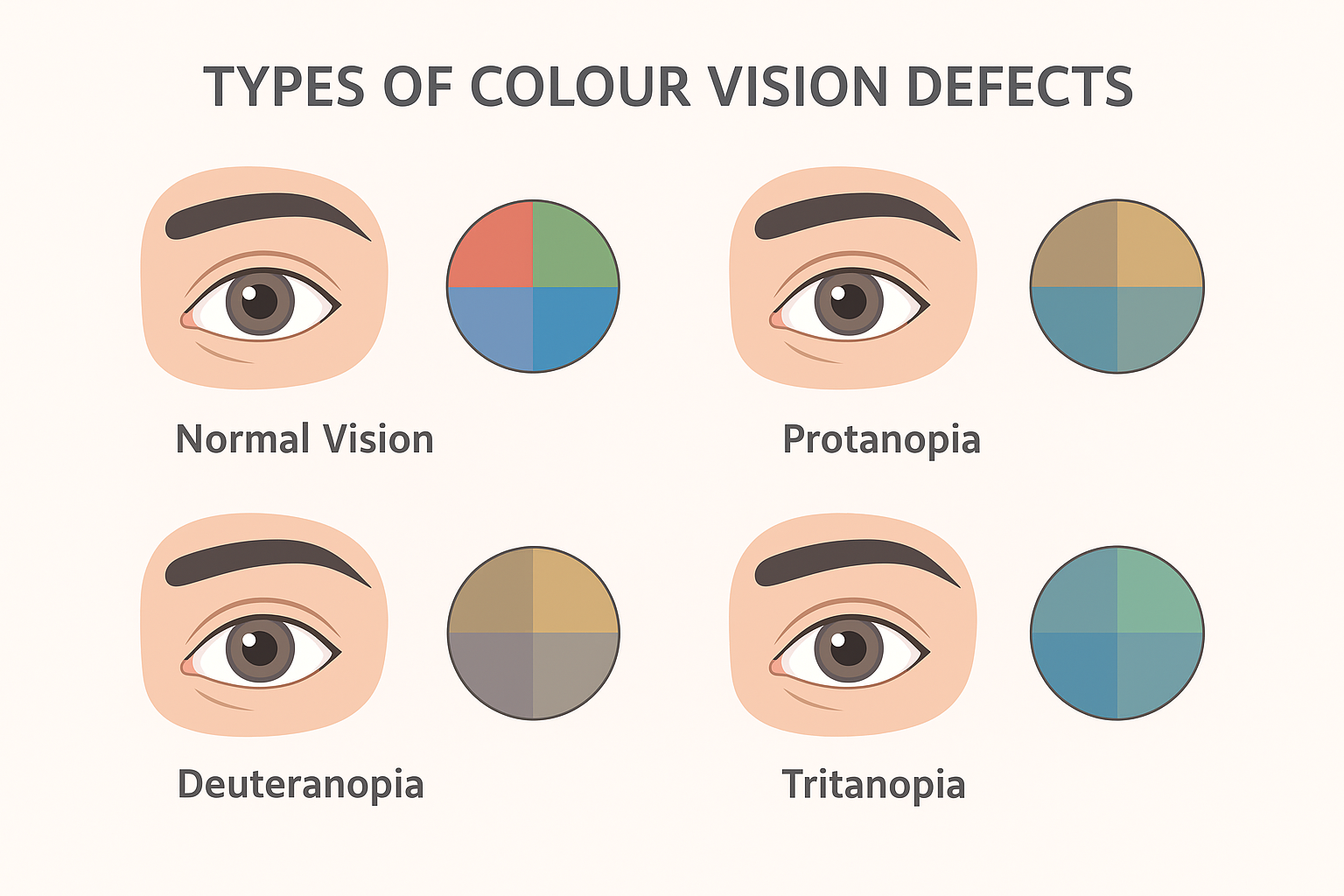
Colour vision is more than just seeing the world in vibrant hues—it affects careers, safety, and daily life. While some people struggle to differentiate certain shades, others may not see colour at all due to congenital or acquired defects. Genetic mutations, eye diseases, medications, or systemic illnesses like diabetes can lead to colour vision deficiencies. Certain jobs—pilots, sailors, electricians, defence personnel—require perfect colour perception to ensure safety and accuracy. Thankfully, testing methods like Ishihara plates, Farnsworth tests, and advanced instruments help detect and classify colour vision problems. While there’s no full cure for inherited colour blindness, aids like tinted glasses, contact lenses, and digital tools help manage daily tasks. Awareness, early testing, and adaptation can empower individuals with colour vision deficiencies to live safely and confidently.
Protecting Eyes from Seasonal Allergies: A Complete Guide

Seasonal eye allergies, or allergic conjunctivitis, are common in India due to dust, pollen, pollution, and weather changes. Symptoms include red, itchy, watery eyes, often accompanied by sneezing or nasal allergies. While not contagious, they can be very uncomfortable. Types include seasonal allergic conjunctivitis (SAC), perennial allergic conjunctivitis (PAC), vernal keratoconjunctivitis (VKC), and atopic keratoconjunctivitis (AKC). Protecting eyes involves avoiding triggers, wearing sunglasses, maintaining hygiene, using preservative-free lubricating drops, and following doctor-prescribed medications if necessary. Diet, hydration, and lifestyle adjustments can also reduce irritation. Parents should be particularly cautious with children, as VKC can affect vision if ignored. Differentiating allergies from viral eye infections ensures correct treatment. Simple measures like cold compresses and regular cleaning can prevent flare-ups, while severe cases need specialist care. Awareness, prevention, and timely action are key to keeping eyes healthy throughout seasonal changes.
Corneal Transplant: Conditions, Types, and Expert Care at Dr. Anushka’s Super Speciality Eye Hospital
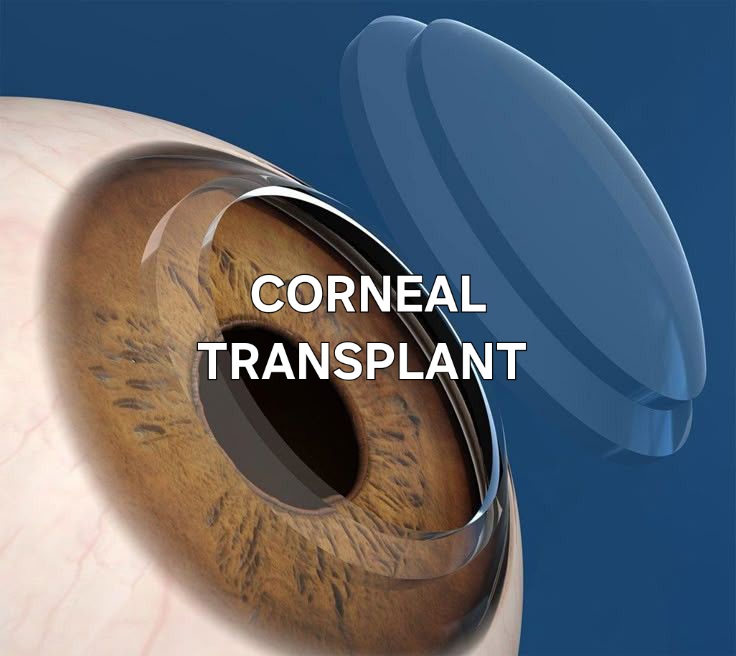
Restore vision and improve quality of life with expert corneal transplants at Dr. Anushka’s Super Speciality Eye Hospital. HOTA-approved and NABH-accredited, we offer advanced, safe, and successful procedures for corneal diseases, even in rural settings.
The Importance of Regular Eye Check-ups: Preventing Eye Diseases Before They Progress

Regular eye check-ups are vital for maintaining good vision and preventing silent eye diseases such as glaucoma, cataracts, and diabetic retinopathy. Early detection and timely treatment at Dr. Anushka’s Super Speciality Eye Hospital ensure long-term eye health and improved quality of life.
Amblyopia (Lazy Eye): Types, Causes, Symptoms, and Management

Amblyopia, or lazy eye, is a leading cause of preventable childhood vision loss. This guide explains its types, causes, symptoms, diagnosis, and treatment options—highlighting the importance of early detection for successful recovery.
Diseases of the Pupil: Causes, Systemic Associations, and Clinical Insights
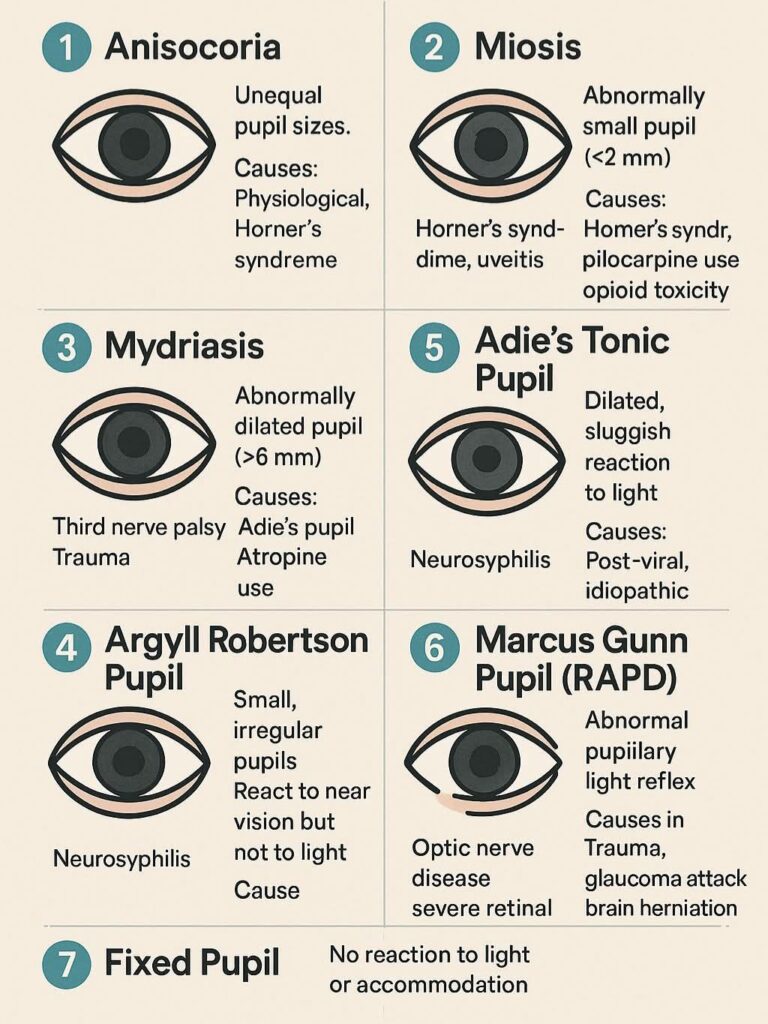
Discover how pupil abnormalities reveal vital clues about eye, brain, and systemic health. Learn causes, systemic associations, diagnostic insights, and treatment of pupil disorders.
Retinal Detachment: Causes, Symptoms, Types, Treatment, and Complications
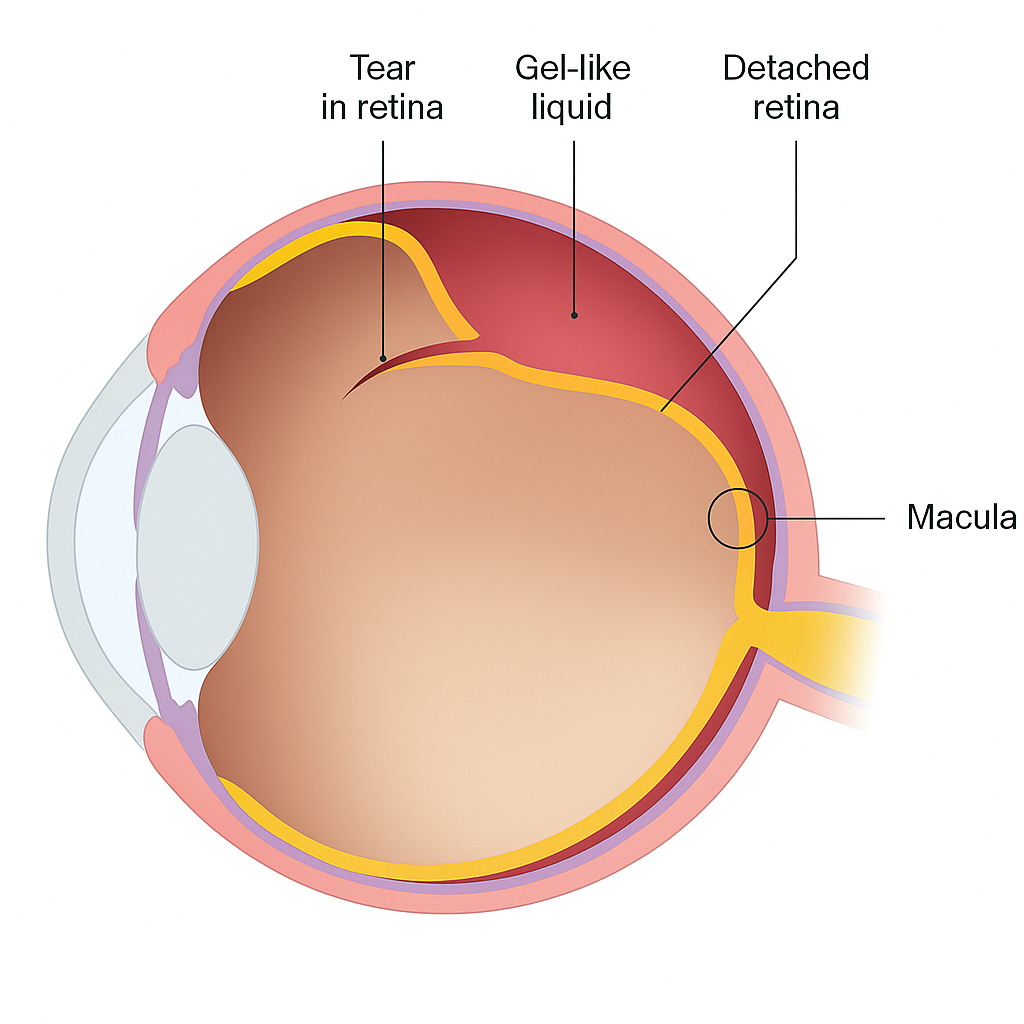
Retinal detachment is a serious eye emergency that can lead to sudden vision loss or blindness if untreated. Learn about its causes, warning signs, types, diagnosis, treatment options, and recovery tips. Early detection and timely surgery greatly improve the chances of saving your sight.
Nutrition in Eye Health: Essential Nutrients and Their Best Sources
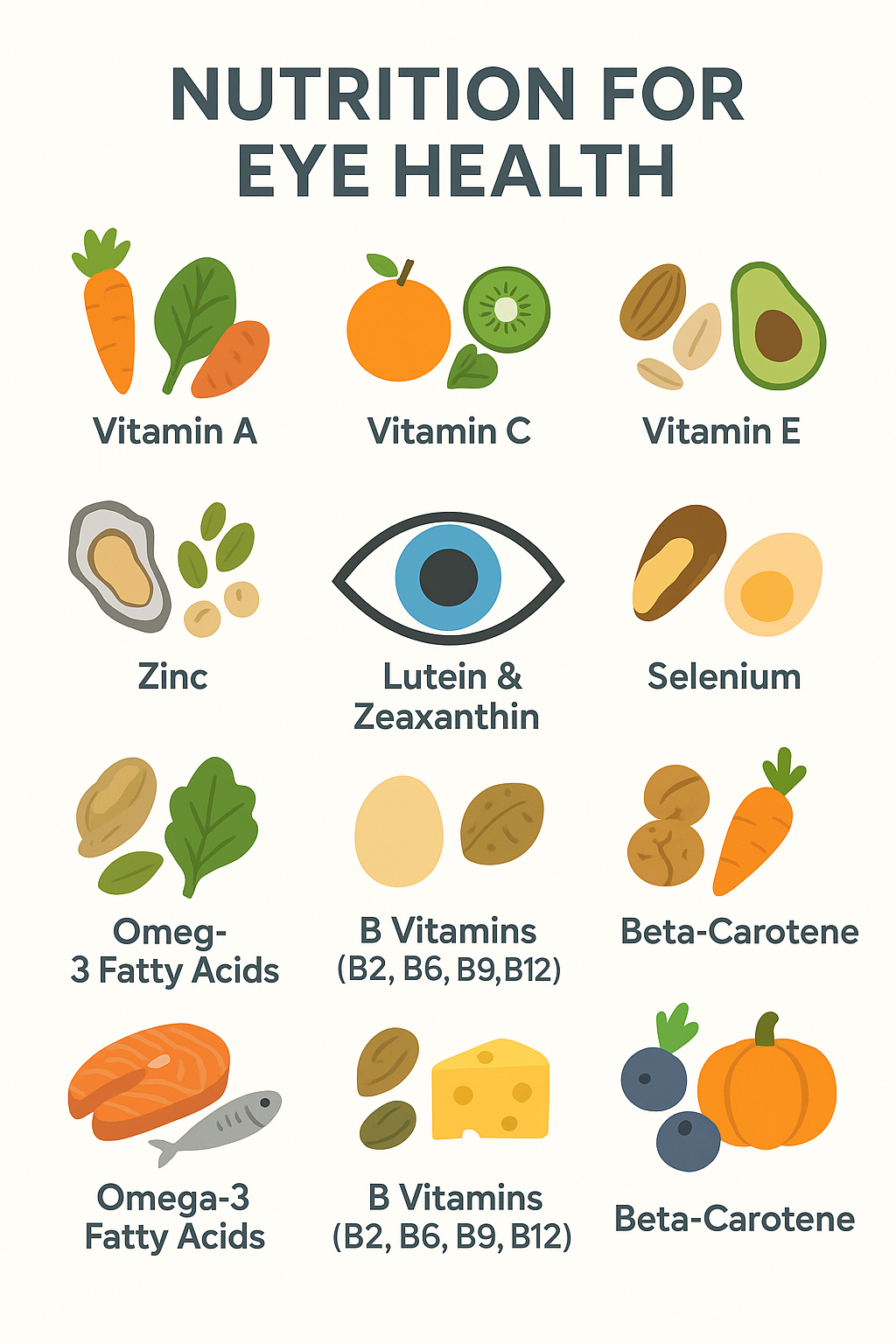
Good nutrition is vital for healthy eyes and clear vision. Nutrients like Vitamin A, C, E, lutein, zinc, and omega-3s protect against cataracts, AMD, and dry eye. Learn the best food sources and diet tips to support your eyes naturally and maintain sharp vision throughout life.



